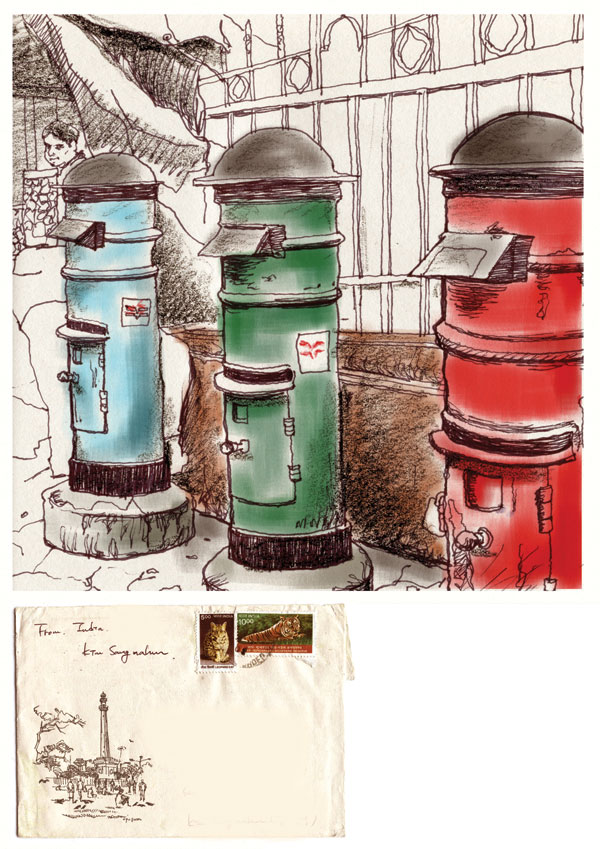
파랑, 초록, 빨강의 우체통은 보내는 지역에 따라 각각 그 색을 달리 한다.
예쁜 우체통을 보니 누군가에게 편지를 써야하겠다는 마음이 들었다.
하지만 아쉽게도 주변 사람들의 주소를 챙겨오지 않았고, 인도 여행이 시작되면서 한국에 있는 사람들에 대한 기억도 아득하게만 느껴진다.
그래서 나는 나에게 보내는 편지를 쓰기로 했다.
“ … … … …
삶은 어디를 관통하며 지나고 있을까요?
아직 끝나지 않은 여행 일정 중에 무엇을 얻으려 하기 보단
그 동안 내가 가지려 했던 많은 욕심을 버리는 법을 배워야 할 것 같아요.
내 안에 숨은 빛들이 세상에 나와 그 쓰임을 다하고
같이 나누며 부지런히 삶을 관찰하며 닦아 나가는
그런 사람으로 늘 남아 있기를 … ”
김 상 남
애니메이션 영화감독
지리교육과 95졸

